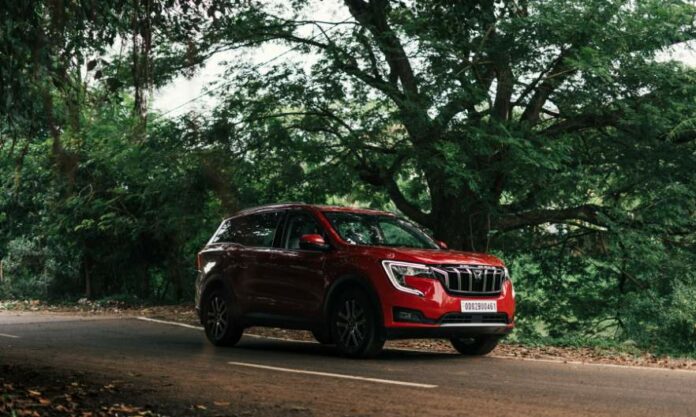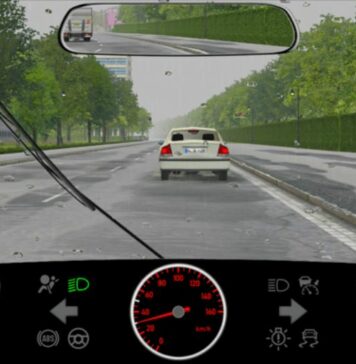You’re not alone if you’ve ever wondered, “Can I drive in India with a German license?”. Many German nationals and expatriates are curious about the possibility of driving in India using their German driving license.
Before hitting the road, it’s crucial to understand the driving regulations in India and ensure that you have the appropriate documentation. We will provide an in-depth guide on driving in India with a German license.
We will discuss the International Driving Permit (IDP), temporary driving licenses, traffic rules, road safety tips, car insurance, legal requirements, and car rental options.
Drive in India with German License
The Indian Ministry of Road Transport and Highways confirms this, stating that a foreigner or NRI cannot drive in India solely based on a European or foreign driving license.
However, if they have obtained an IDP from their home country and their country is a signatory to the 1949 Geneva Convention, they can drive the specified vehicle category in India until the IDP expires.
We have already written a detail about driving in Germany with an Indian license.
IDL is Key to Driving in India with a German License
An International Driving Permit (IDP) is a document that allows you to drive in India with a German license legally. It is an internationally recognized translation of your national driver’s license, making it easier for authorities in foreign countries to verify your driving credentials.
How to obtain an IDP in Germany
To get an IDP in Germany, you must apply through the local authorities (Führerscheinstelle) or automobile clubs like ADAC (Allgemeiner Deutscher Automobil-Club). The process usually involves the following steps:
- Fill out an application form for an IDP.
- Provide a recent passport-sized photograph.
- Present your original German driver’s license.
- Pay the required fee (usually around 20 euros).
Once your application is approved, you will receive your IDP, valid for one year from the issue date.
An IDP allows you to drive in India with a German license for a maximum of one year from the date of your arrival in the country.
Traffic Rules and Road Safety Tips to Drive in India with a German License
When planning to drive in India with a German license, it is essential to familiarize yourself with the local traffic rules and adopt road safety practices to ensure a smooth and secure experience. This section will provide an overview of traffic regulations, road conditions, and safety tips for German drivers in India.
Understanding Indian traffic regulations and signs
India follows a left-hand traffic system, which may differ from what you’re accustomed to in Germany. Here are some key traffic rules to keep in mind while driving in India with a German license:
- Always drive on the left side of the road.
- Overtake vehicles from the right.
- Give way to cars coming from the right at intersections.
- Adhere to the posted speed limits and traffic signals.
- Use your seatbelt at all times.
- Use your indicators when changing lanes or making turns.
- Follow the road signs and markings, usually in English and Hindi.
Adapting to the unique driving conditions in India
India’s roads can be challenging for foreign drivers due to congested traffic, diverse road users, and unpredictable driving behavior. Here are some aspects to consider when driving in India with a German license:
- Be prepared for a variety of vehicles, including bicycles, motorcycles, auto-rickshaws, buses, and trucks, sharing the roads.
- Remain cautious of pedestrians and animals, such as cows or dogs, which may unexpectedly appear on the road.
- Exercise patience and avoid aggressive driving, as the traffic flow might be slower than in Germany.
- Be aware of the varying road conditions, including potholes, unpaved roads, and poorly lit areas.
Road safety tips for German drivers in India
To ensure a safe driving experience in India with a German license, follow these tips:
- Always maintain a safe distance from other vehicles to avoid collisions.
- Use your horn judiciously to alert other drivers of your presence.
- Be extra cautious at intersections and roundabouts.
- Avoid driving during peak traffic hours, if possible.
- Limit your driving at night, especially on poorly lit or unfamiliar roads.
- Keep a map or GPS device handy for navigation.
Renting a Car to Drive in India with a German License
Numerous car rental companies cater to foreign drivers in India, offering various types of vehicles to suit individual preferences and budgets. Some well-known international car rental agencies operating in India include:
- Avis
- Hertz
- Europcar
- Sixt
In addition to these international companies, local car rental agencies may provide more competitive rates. Doing thorough research, reading reviews, and comparing prices before choosing a car rental company is recommended.
Necessary documentation for renting a car
To rent a car in India with a German license, you will need to provide the following documents:
- Your valid German driver’s license.
- An International Driving Permit (IDP) translates your German license into English.
- Your passport and visa prove your identity and legal status in India.
- A credit card in your name for the security deposit.
Some car rental agencies may have additional requirements, such as a minimum age limit or driving experience. Check with the company you choose for their specific terms and conditions.
Tips for a smooth car rental experience
Keep these tips in mind when renting a car to drive in India with a German license:
- Book your car rental in advance, especially during peak travel seasons, to ensure availability and potentially secure better rates.
- Carefully inspect the vehicle for any existing damages and take photos as evidence before signing the rental agreement.
- Familiarize yourself with the car’s features and controls before hitting the road.
- Opt for comprehensive insurance coverage to protect yourself from potential liabilities in case of accidents or damages.
- Inquire about additional services or equipment that may be useful, such as GPS navigation devices, child seats, or roadside assistance.
- Keep the car rental agency’s contact information handy in case of any issues or emergencies.






